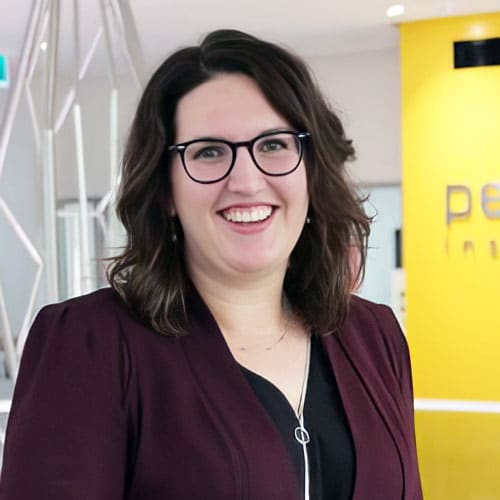
Dr Belinda Kaskow is a Postdoctoral scientist and lecturer at the University of Western Australia, Murdoch University and the Perron Institute for Neurological and Translational Sciences.
Her favourite part of working in the lab is dreaming up and designing the best experiment to answer the questions of interest, which requires much thought, innovation and patience.